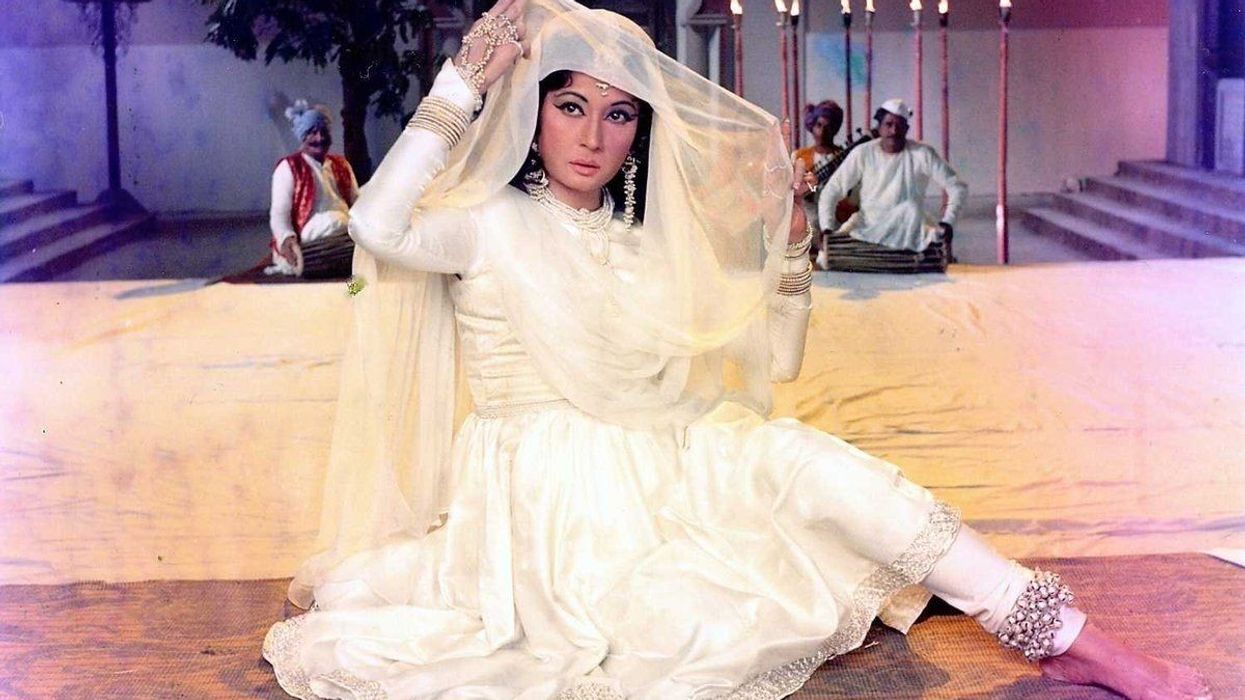RECENT reports suggest a planned biopic about filmmaker Kamal Amrohi and his love story with actress Meena Kumari.
Titled Kamal Aur Meena, the involvement of Amrohi’s family in this Bollywood project indicates that history may be distorted in favour of a man who, according to many experts, was a serious domestic abuser. Rather than the great romance this movie seems to portray, their union is remembered as one of the biggest tragedies in the history of Hindi cinema.
Historians, writers and those who were present at the time confirmed what transpired was far from a romantic love story. (Much of this has already been revealed in books and other online sources.)
In 1952, Amrohi, then 34, who had children and was still married to a wife he never divorced, wed 19-year-old Meena Kumari.
By that time, he had found some fame as a writer and director with the success of the 1949 film, Mahal.
However, most of his subsequent projects failed to make a significant impact.
Meanwhile, Meena Kumari became a superstar that same year with the blockbuster, Baiju Bawra (1952) and began cementing her place as one of Hindi cinema’s greatest leading ladies after a string of stunning successes.
What fans did not see was the horrific domestic abuse she suffered at the hands of her older husband behind closed doors.
Although it was widely known within film circles, Amrohi repeatedly denied any violence against his young wife.
Vinod Mehta, who wrote a biography of Meena Kumari, reportedly learned of the abuse from six different sources. (Several film legends and wellplaced insiders have also confirmed this to me.)
What made the situation worse was Amrohi’s reported use of his right-hand man not only to spy on Meena Kumari, but also to beat her. There were long-standing stories in the film community that Amrohi’s assistant would assault Meena Kumari on his behalf, sometimes with Amrohi watching.
This tale has circulated in Hindi cinema circles for decades. The violence eventually drove Meena Kumari to leave Amrohi and she took to alcohol.
Kamal Amrohi (left) and Meena KumariThe actress also walked away from Amrohi’s dream project, Pakeezah, which he was writing, producing and directing.
Following the abuse she endured, Meena Kumari became an alcoholic and got involved in a series of doomed love affairs.
Eventually, despite all challenges, she agreed to complete Pakeezah, but tragically died soon after it was released.
So, what might have been seen as an epic romance was, in reality, a heartbreaking tragedy, ending with one of India’s greatest actresses dying at 38, a penniless and emotionally shattered woman.
It is hard to imagine a frontline actor taking on the role of Amrohi in Kamal Aur Meena, and it would not be surprising if the film ends up being shelved.
However, history should not forget what Amrohi did. There are numerous reminders in books, testimonies, and news reports that should keep this story alive.




